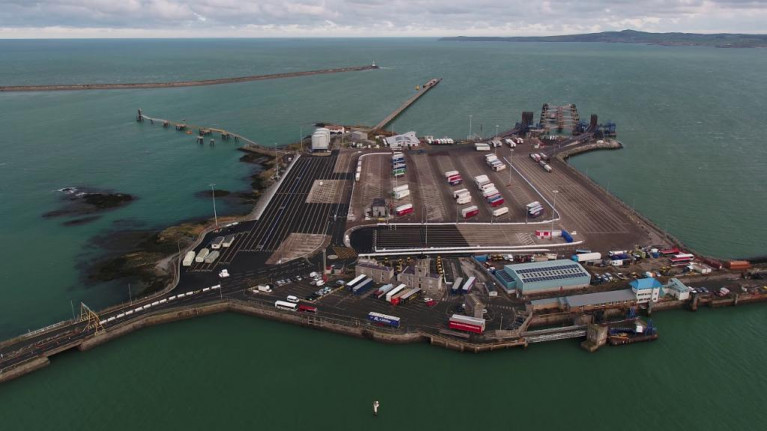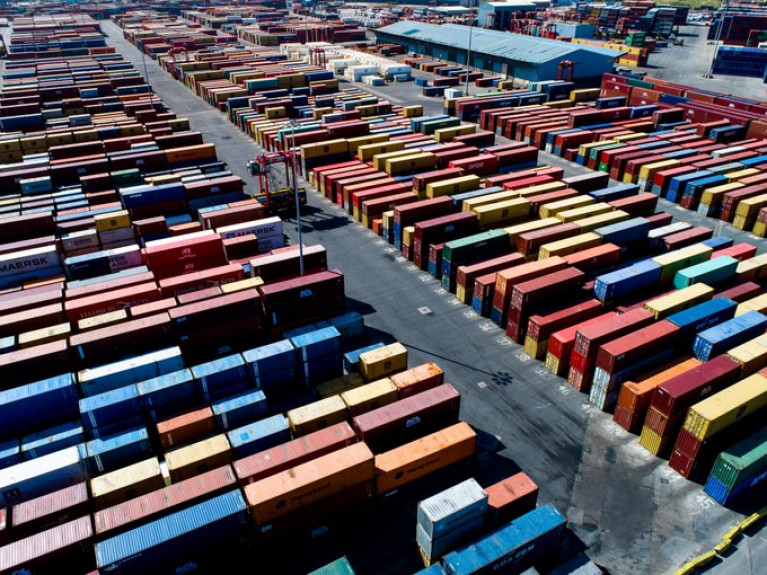Displaying items by tag: Freeports
Freeport Status Secured in North Wales in Move Backers Say Will Create Thousands of Jobs
A freeport status in Anglesey, north Wales has been secured in a move backers say will create thousands of jobs for the region.
The Welsh Government in May, 2022 had reached an agreement with the UK Government to establish a freeport programme in Wales. This followed a long stand-off between the governments over the levels of funding.
The island freeport around Holyhead (located on Holy Island off Angelsey), was up against bids from ports in south Wales through Celtic Freeport, comprising of Milford Haven and Port Talbot. In addition to the bid of a multi-site freeport that included Cardiff Airport.
The recent announcement of the Freeports status had confirmed that Anglesey and the Celtic Freeport had both been successful bidders.
The UK and Welsh governments announced the news as a joint decision and this will lead the UK Government to provide up to £26m of non-repayable starter funding for the three freeports.
Of these ports, Afloat highlights Holyhead and Milford Haven (Pembroke Dock) have ferry links to Ireland.
For much more on the freeports deal which has secured £52m, NorthWalesLive reports.
Freeports in Scotland & Wales Resisted by UK Government Might be Dead in the Water after Treasury ‘Kills’ Idea
Following a long fight with the Scottish and Welsh Governments over imposing freeports on the autonomous nations, they may have been “killed” after all, UK Government sources have said.
Welsh Secretary Simon Hart had previously said that Wales would have to accept a freeport “come what may” and Economy Minister Vaughan Gething had warned them not to “impose” a tax-free port on Wales.
But senior ministers have now briefed to the London newspapers that Treasury officials had now “killed” the ports. It was one of many UK Government schemes across Whitehall suppressed by Civil Servants, they said.
Prime Minister Boris Johnson and Rishi Sunak had previously lauded the free ports as a way of “levelling up” the economy outside of London.
The Welsh newspaper, Nation Cymru has further coverage of the story.
Afloat adds there is only one designated freeport located on the UK's west coast, that been at the Port of Liverpool.
Ports Association in UK Welcome Freeports Milestone
Ports in the UK represented by the British Ports Association (BPA) today welcomed the launch of the bidding process and the publication of the bidding prospectus for Freeports in England.
According to the BPA they have been promoting a port zoning economic vision that supports regional growth and prosperity akin to the Freeports strategy for several years.
This stage represents a key step forward to the establishment of a more advanced model Freeports than previously seen. However inclusivity and consistency around the UK is still something policy makers need to consider to ensure all regions can benefit.
The British Ports Association, the national association for all types of ports, harbours and terminals, speaks for over 400 ports, terminals and port facilities. BPA membership facilitates 86% of all UK port trade and handles 85% of all vessel arrivals in the UK.
The BPA has championed the value of port clusters as a way of driving economic growth in coastal regions. Since the UK Government’s announcement of the establishment of 10 Freeports in the Summer of 2019, the BPA has argued that the Government must prioritise the principles of inclusivity, competition and fairness when forging the policy.
The BPA welcomed recent suggestions that the Treasury would consider the establishment of more than 10 Freeports in the event they receive a large number of high-quality proposals.
More here on the development from the BPA and their Chief Executive Richard Ballantyne.






























































